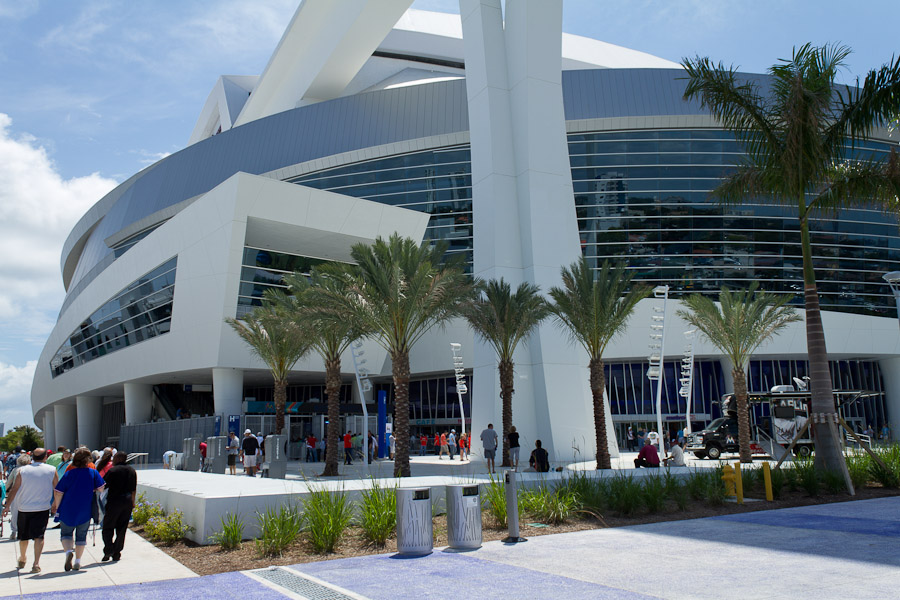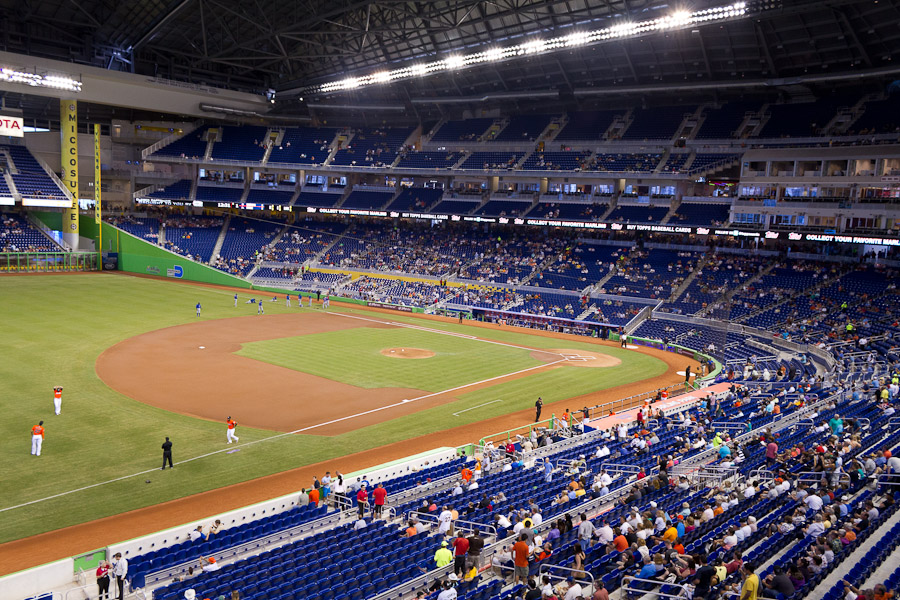What a surprising phenomenon.
Miami has constructed the—well, let's not pussyfoot here—newest baseball park in the country, and somehow has created the most boring venue in history for watching a baseball game ever devised.
In fairness, I went to the park expecting the Marlins to win, for the simple reason that my Cubs suck like a Dyson this year. (No, really, I mean more than usual.) The Cubs did not disappoint, leaving forty men on and losing 127 to 3. I feel confident that we'll go all the way to 160 games this year, and possibly next year, though I'm skeptical of the Cubs getting into the post-season during Parker's lifetime. Or mine.

I digress. I was excited to go to the newest of baseball's jewels, and to see what $515m buys a club these days. I was...underwhelmed. And then I got antsy. And then I decided that $515m buys a baseball park so devoid of anything resembling baseball that it's best described as a "Baseball Experience" at some theme park in a place where no child has ever held a bat or a ball.
By the third inning, I hit upon the one thing that, more than any other, explained my discomfort and disappointment. There are no shadows. Not on the field, the players, the stands, on nothing. Everything looked flat and sterile. It was like being locked in a warehouse on the first spring day of the year, knowing that life was brighter and more real outside, but unable to join it until the sadness in front of you finished.
Outside, it was 25°C and sunny. Inside, it was 23°C and...inside. No breezes, no shadows, no connection to the rest of the world. Inside Marlins Park I experienced Entertainment, not a baseball game. (I spoke to a press agent at the park who confirmed that they closed retractable roof about an hour before game time, because they worried about the heat. The heat. In Chicago we cry for joy when we have a game day this beautiful; in Miami, they close the roof.)
Apparently I'm not the only one who thought so, judging by my section around the 5th inning:

I'm not satirizing here. This was the 7th game ever in this park, and barely 3/4 of the seats had asses in them. And do you know why? (I'm addressing you, Mr. Loria.) Because it wasn't baseball. It was indistinguishable from any other corporate-designed, corporate-managed Experience that attempts to distill something down to its marketable components and misses entirely the reason that people enjoy it. People who like Marlins Park will probably Olive Garden, the Twlight books, and Mitt Romney: facsimiles all. But none of them real.*
I mean, would Wrigley Field ever stoop to this?

All right, I concede, Ricketts might hire cheerleaders, but they'd be real cheerleaders, dammit.
I will close with this, the view from my seat, which the park designers got right. Every seat in the park, I am certain, had a good view (which we know is not the case at Wrigley). But after tomorrow's game, I'm going to rank-order the 20 parks I will have seen, and I suspect Marlins Ballpark might come out poorly.

* And also not worth $40 for the ticket and $10 for each beer. Not to mention, for the love of dog, can you at least have more than four awful beers on tap? Heineken, Corona Light, Bud Light, and Miller Light qualify, collectively, as 1.25 beers—and Heineken is 0.8 beers on its own. Is there a single brewery in Florida? Dang.